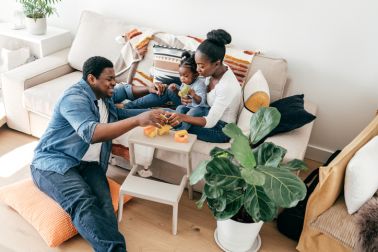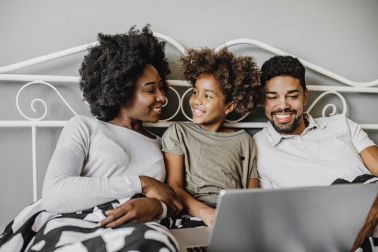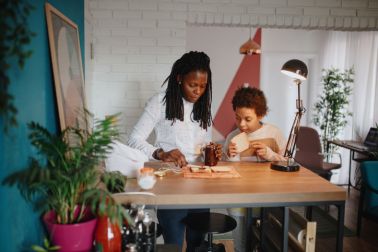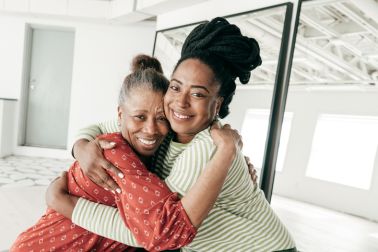
Source: kate_sept2004 / Getty
Color of Change, the nation’s largest online racial justice organization, held a digital town hall, titled “The Black Response To COVID-19” on Wednesday to help help Black communities identify actionable items and resources in order to navigate through this unprecedented territory.
The event signified a particular importance due to our historic experience in the United States. We know that if an economic downfall or public health crisis seeks to harm and/or impact American citizens, Black populations stand to lose the most.
The town hall was hosted by media personality Van Lathan and featured Color of Change’s president, Rashad Robinson, Brandi Collins-Dexter, the organization’s senior campaign director, Scott Roberts, the senior director of criminal justice campaigns for Color of Change, along with Alicia Garza, founder of the Black Future’s Lab and former co-founder of Black Lives Matter.
Lathan began with a thread that carried throughout the hour-long town hall, sharing that as a native of Louisiana, he’s experienced a lack of government accountability prior to their mishandling of this pandemic. “Hurricane Katrina ripped through my home state and ripped through civilization there seamlessly and simultaneously,” he said.
“This is a moment for us to turn towards each other when everybody around is encouraging us to turn away,” said Garza.
Katrina stands as a solemn reminder of how Black and underserved communities were neglected and devalued due to systems which stand to presently threaten us in the coronavirus outbreak.
Here are some important threads from the informative town hall.

Source: blackCAT / Getty
Spread awareness around how the coronavirus will impact Black communities.
Robinson argued that it will only be a matter of time before the coronavirus begins to wreak havoc on Black communities, where access to social services like health care, food assistance and information provided through broadband internet service, sometimes runs scarce.
“I think we have to be mindful that while we are talking about a global pandemic we are really as it relates to black people talking about three crisis in one, we’re talking about a public health crisis, an economic crisis and democracy crisis,” Garza said.
Garza warned that distinction now exists between those who remain on the front lines and those who have the privilege to shelter in place, with categorizing “nonessential” vs “essential” workers. Service based industries including medical professionals, delivery workers, fast food workers, transportation workers and porter staff have been labeled as essential workers, while the rest of us are allowed to work from home. It will be the essential workers who face the most exposure to the virus.
“We have to depend on each other in deep ways, we’re going to have to find ways to rely on each other,” Robinson continued.
“This is a moment for us to turn towards each other when everybody around is encouraging us to turn away,” said Garza.
We need to demand government accountability to bail out communities instead of corporations.
While congress passed an intricate $2 trillion stimulus bill which seeks to provide $1,200 to citizens who fall under a sect of categories, it is imperative to understand that the aid does not reach far enough.
“What we are seeing what right now is deregulation and chronic disinvestment in our communities,” Dexter-Collins said.
Some politicians were even able to profit off of the pain of global citizens, after it was made public that insider trading deals were sought out by several members of congress.
“It’s not just the flood that hits us, the virus that hits us, it’s the flood of bad decisions more and the flood of bad decisions after,” Robinson said. He also called for government to set living wage for workers who are still unable to secure a salary of $15 per hour.
Robinson urged that along with government officials, we hold our media to a high standard of producing informative and factual content, while corporations should be held accountable for their mistreatment of employees, especially those in the service industry.
Source: Anchiy / Getty
Prison populations are being ignored in the midst of this crisis.
Black people are incarcerated at more than 5 times the rate of whites, according tothe NAACP. One in three men Black men face the likelihood of imprisonment while the statistic stands at one in every 18 Black women. The numbers are staggering due to criminal justice policies spearheaded by racial bias, making Black communities more susceptible to over-policing and harsher sentences.
Several organizations, including Color of Change have called for the release of prisoners during the pandemic, especially those who are higher risk including the elderly and immunocompromised individuals.
“We are seeing people getting released from jails but it isn’t really enough,” Roberts said. “We’re looking to turn up the heat on local and state officials especially.”
He pointed to a number of harrowing situations across the country, where prisons have seen an uptick in cases, while maintaining unlivable, dire conditions.
In order to stop this inhumane treatment, Roberts said we have to vote for local prosecutors, sheriff’s and judges who are invested in our communities. We also will also need to place pressure on state officials, like governors who have authority over state-run prison systems and demand they offer guidance for officials on a local level.

Source: kate_sept2004 / Getty
Stay engaged through the uncertainty.
“Don’t isolate yourself, don’t go down a rabbit hole,” Garza said.
She encouraged everyone to stay locked into what is happening in Black communities and warned against checking out for extended periods of time. She, along with the other panelists, called on our communities to be active participants with organizations like Color of Change in order to contribute to the grassroots and on the ground efforts across the country.
The 2020 presidential election will go forward whether the virus is here or not and now is the time to make sure we are prepared as possible to turn out and vote. “The moment we are in right now is a pure example of why showing up to the polls is so important,” Robinson said.
Collins-Dexter also warned against ingesting information that is anti-Black or reeks of hurtful rhetoric. “We know what the media and other people tell us who we are and that’s not who we are,” she said.
Black people are and have always been, resilient.
At the end of the town hall each panelist offered a nugget of hope and wisdom for anyone who is paralyzed emotionally, financially or spiritually in the midst of this crisis.
“I think that this point about the ways in which we come together our communities and innovate, even in times of scarcity. And our ability to laugh and have humor,” Collins-Dexter said.
“This is how we translate this moment, a deep presence about the failure of this country into the power to actually change those rules,” said Robinson.
“From slavery until today no one is better at improvising, organizing, building a community, making a way out of now way then we are,” said Roberts.
You can watch the full event by clicking below.









